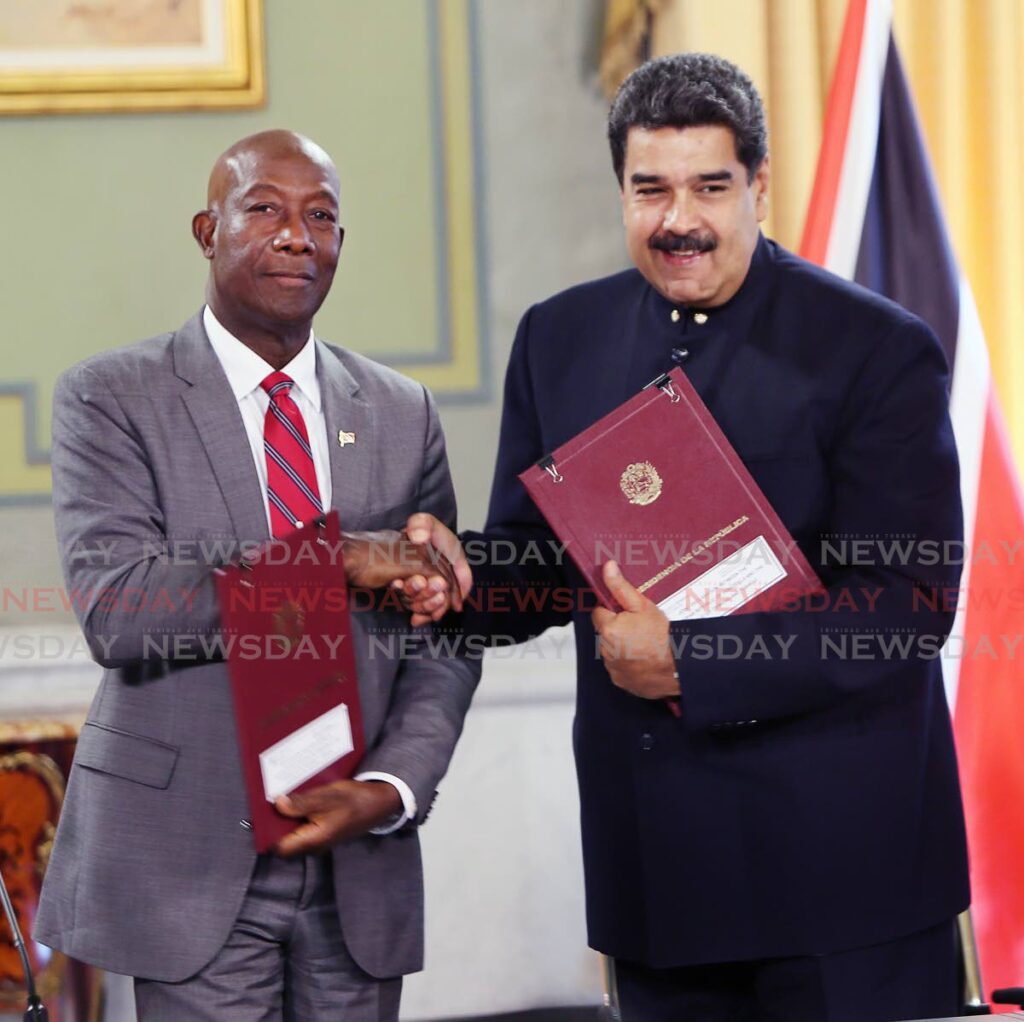Venezuelan government silent on US-Trinidad and Tobago Dragon gas deal

After the US government granted a licence to TT on Tuesday to continue with the gas exploration project in the Dragon field off Venezuela, the Venezuelan authorities remain silent in the face of the news.
As of Saturday, only some private media outlets in Venezuela reported the agreement between TT and the US. No representative of the Venezuelan government, nor the state media, said anything about it.
Venezuela's ambassador to TT Álvaro Sánchez Cordero told Newsday on Saturday morning he was not yet authorised to comment on TT's now-held licence to exploit Venezuelan gas.
Dr Rowley said this exemption came with conditions, one of which is a two-year licence with a view of an extension and priority given to Caricom countries, except Cuba.
Rowley had applied for a ten-year licence. Venezuela will not be paid in cash, but Rowley said this was not a major problem. TT has provided goods and services to Venezuela when the South American country encouraged a shortage owing to its economic crisis which triggered a migration of Venezuelans to this country.
Sources said the Venezuelan government would be carefully analysing the options before issuing any official statement.
Venezuelan migrants in TT responded through social media. Many said they agreed the granting of the exploration licence will benefit TT, however, they hoped this translated into improvement of to their legal and social conditions here.
Luis Martínez told Newsday on Friday, TT can jump-start its economy amid difficult times after the covid19 pandemic.
“It is an achievement for TT. Venezuela has enough gas for the business to be prosperous and generate profits for both countries. I hope these profits are used for the benefit of both peoples,” he said.
Martinez said he is a little concerned about the way TT will pay his country for this deal.
“Venezuela cannot receive cash for this agreement. I have some doubts where this money will go then,” said Martínez.
Carlos Herrera said this is a great opportunity for the TT government to start a dialogue process with the Venezuelan community and find ways to improve the status of migrants.
“I think that the TT government must evaluate many things regarding the Venezuelans here. We are part of a country who is giving TT the possibilities of growth. We Venezuelans need improvements in terms of our legal status, education for our children, health, social opportunities,” he said.
In August 2018, Dr Rowley and Venezuelan president Nicolas Maduro signed an agreement for TT and energy giant Shell to build an 18 kilometre pipeline from the Hibiscus platform, off the northwest tip of TT, to the Dragon field which has reserves of 2.4 trillion cubic feet. From Hibiscus, the gas will then be transferred through existing infrastructure to the Point Lisas Industrial Estate and other customers of the National Gas Company. The Dragon gas field is owned by Venezuela’s state oil company PDVSA.
The terms then included TT pay PDVSA for the gas, helping that country monetise its hydrocarbon assets. However, the plans were halted in 2020 when the US imposed sanctions on Venezuela affecting its trading partners.


Comments
"Venezuelan government silent on US-Trinidad and Tobago Dragon gas deal"